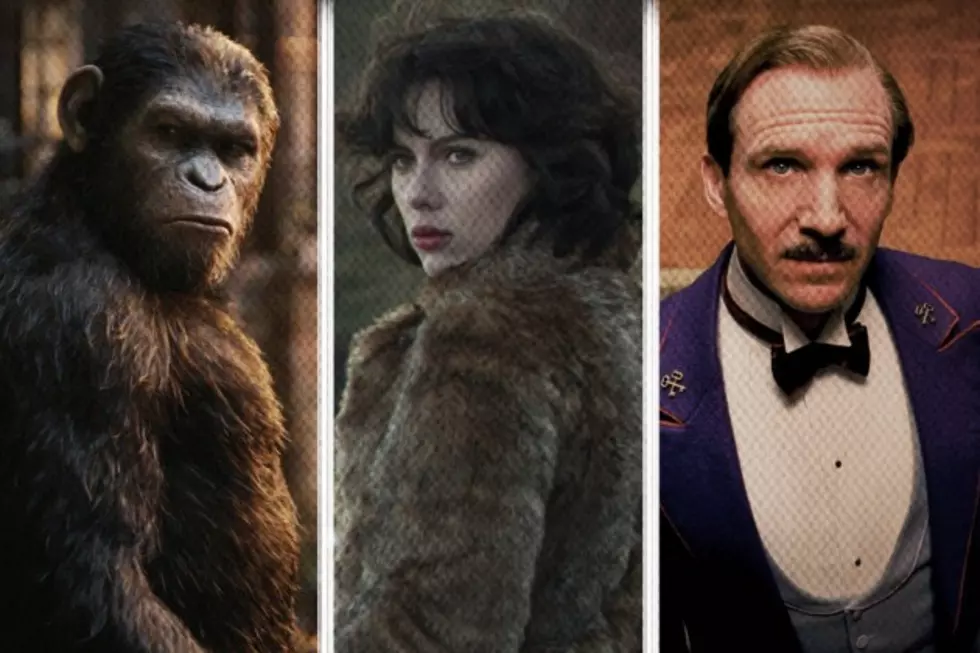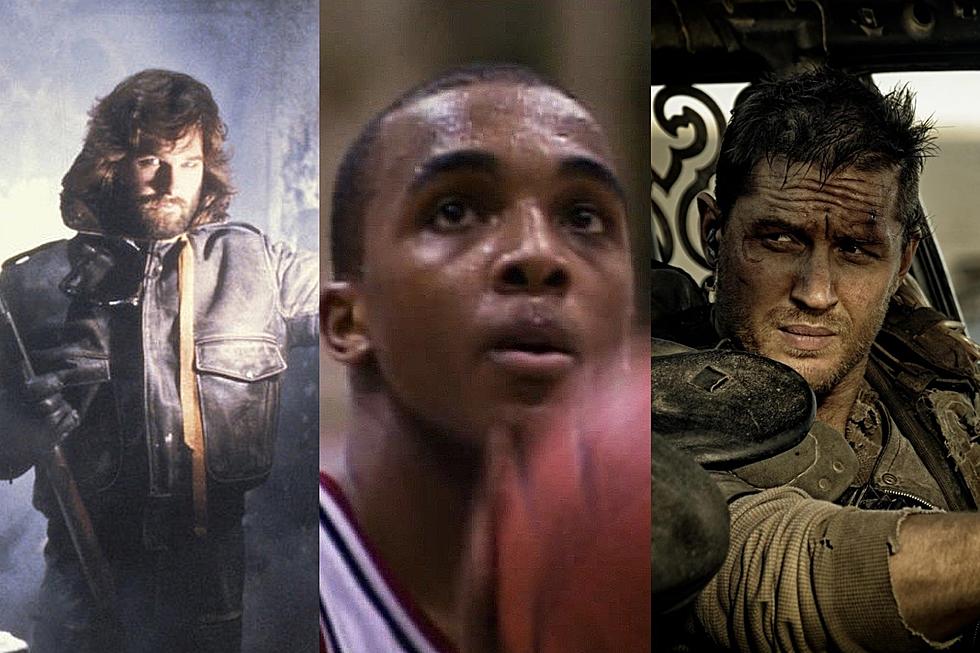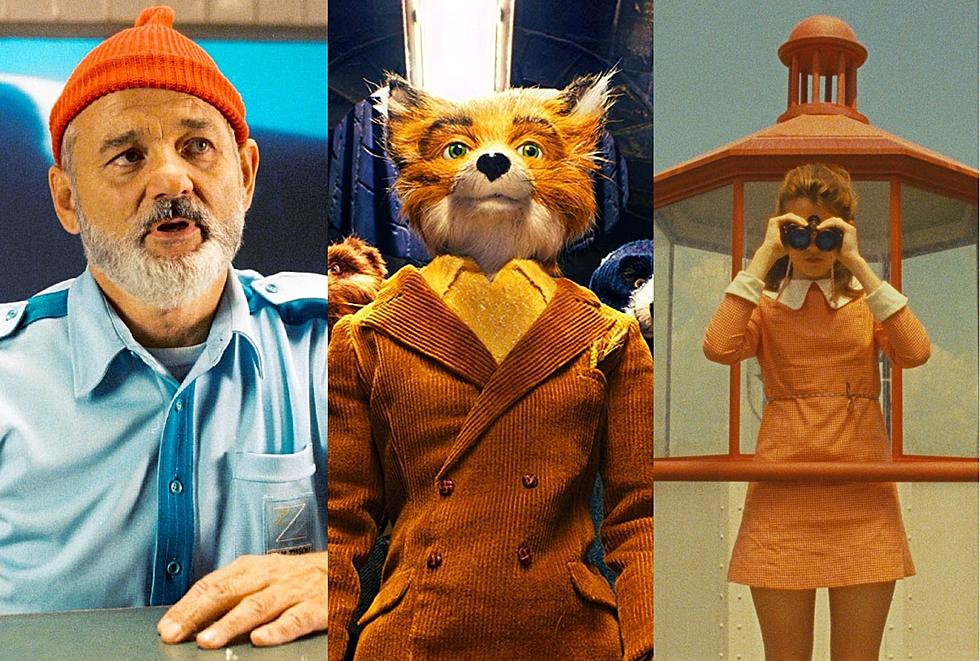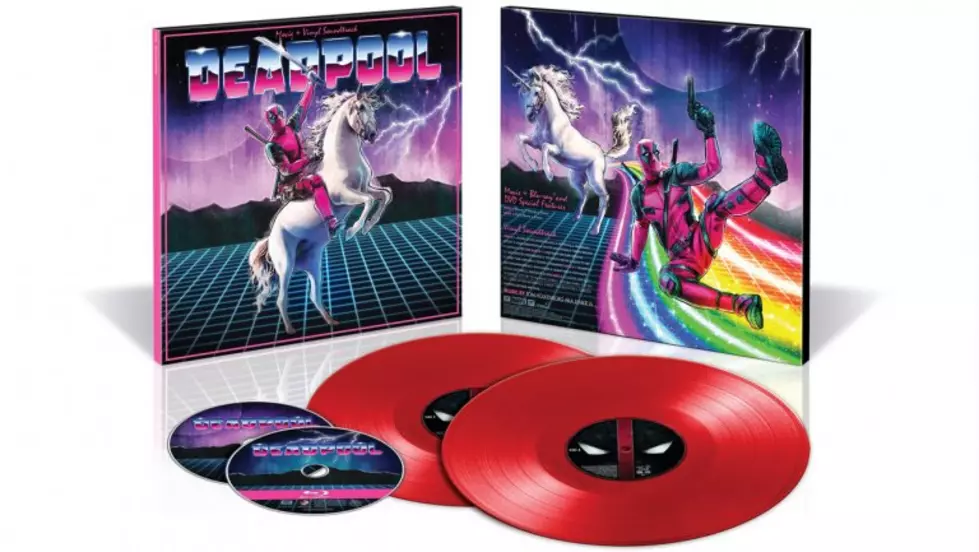
The Best Movies of 2014 (According to Matt Singer)
I don't know who invented the tradition of creating a year-end top ten list, but I hate them.
Only ten movies? Out of an entire year? List-making is fun, but picking the best movies of 2014 from the dozens of great ones released this year was a more brutal experience than sitting through ‘Transformers: Age of Extinction.’ Even with ten more honorable mentions, I had to leave out so many terrific, deserving movies (like ‘Edge of Tomorrow’ and ‘Frank’ and ‘Ida’ and ‘Finding Vivian Maier’ and ‘22 Jump Street’ and ‘Actress’ and yes at this point I’m basically just cheating and naming extra movies to assuage my guilt).
Still, it wasn’t all impossible choices. Most of my top five has been set for months, and my number one was an easy decision (when a film moves you to tears, inspires hours of stimulating discussion, and seems like something that will still be talked about by cinephiles and scholars 50 years from now, it’s the clear-cut best movie of the year). Nevertheless, it hurt to leave out ‘A Most Violent Year,’ ‘Enemy,’ ‘Palo Alto,’ ‘Inherent Vice,’ and so many others. (Yep, still cheating. You noticed, huh?)
But as my mother would say, this is a good problem to have. It wasn’t a great year for critics in movies—see ‘Birdman’ (or ‘Chef’ [or ‘Top Five’ (or ‘Big Eyes’)])—but it was a great year for critics at movies. 2014 offered an tremendous variety of fantastic films: big and small; foreign and domestic; mainstream and indie. To anyone who says the overall quality of movies has declined, I call B.S. There are more good movies now than ever before. If you can’t find one, you’re not looking very hard. Take, for instance, these ten instant classics:
- 10
‘Dawn of the Planet of the Apes’
Directed by Matt ReevesThe best blockbuster of 2014 by gorilla-sized leaps and bounds. On its surface, ‘Dawn’ is a suspense-filled story of two societies, man and ape, walking a razor’s edge between peace and war. And beneath that surface, its dystopian future is full of clever allegories for our present society, and issues like racism, gun control, and the cyclical nature of violence. The motion-captured apes, led by Andy Serkis’ Caesar and Toby Kebbell’s Koba, were more complex and completely realized than the human characters in almost every other summer movie this year, and this exciting, thought-provoking sequel was a frank reminder that blockbusters and brains can co-exist, even if this franchise’s gorillas and humans prove time and again that they cannot.
- 9
‘We Are the Best!’
Directed by Lukas MoodyssonBobo (Mira Barkhammar) and Klara (Mira Grosin), the teenage heroines of Lukas Moodysson’s ‘We Are the Best!,’ are sorely lacking in culture (at least the non-dairy-based kind). Frustrated by obnoxious boys and their overbearing parents, and unswayed by their absolute lack of musical talent or experience, they form a punk band to rage against the machine that is early ’80s Stockholm (and having to play sports in gym; they hate playing sports in gym). ‘We Are the Best!’ is a specific story (based on Moodysson’s wife teen years), but its message about growing up an outsider, feeling like a weirdo, and discovering yourself in personal expression is incredibly universal. ‘We Are the Best!’ also wins the award for 2014’s best use of a movie’s title in a line of dialogue. If you haven’t seen this one yet, it’s currently available to stream on Netflix.
- 8
‘The Trip to Italy’
Directed by Michael WinterbottomI wrote at length about this film earlier this month, but to recap: ‘The Trip to Italy’ is both the funniest and the most depressing movie of the year, one that tackles big subjects like mortality and disappointment with brilliantly dark humor. Though superficially a food-porn-drenched road-trip movie, all of its good times are tinged with sadness; when the sun sets at the film’s end, it’s clear that the journey ahead for Steve Coogan and Rob Brydon (both playing themselves with a stunning lack of vanity) won’t be a particularly bright and shiny one. Let’s just hope they keep inviting us along for the amazing Michael Caine impressions and the surprisingly insightful observations about love and death.
- 7
‘Selma’
Directed by Ava DuVernayThis step-by-step procedural about the planning and execution of the 1965 Selma-to-Montgomery marches in support of the Voting Rights Act spearheaded by Dr. Martin Luther King Jr. (a brilliant David Oyelowo) bears all kinds of modern-day resonances with the ongoing protests surrounding police brutality (not to mention secret government surveillance of American citizens). But even if the film wasn’t heartbreakingly relevant, it would still work because of the way it puts King’s life under the microscope; director Ava DuVernay reminds us of the importance of Dr. King’s work and beliefs, without ignoring his flaws as a husband and father. Few movies about historical events bear this much urgency and passion.
- 6
‘Force Majeure’
Directed by Ruben ÖstlundSo many films in this age of comic-book adaptations are about heroism. ‘Force Majeure’ is the rare one about cowardice. A Swedish family travels to the French Alps for a ski vacation, where a terrifying event (and what the father fails to do when this single, terrifying event occurs) changes their lives forever. What follows is a piercing examination of human nature, marriages, and masculinity, and what happens to someone when they (and their loved ones) realize that they’re decidedly not a superhero. This one’s worth watching twice to catch all the hilarious lines of dialogue foreshadowing the big showcase setpiece, and to stew over the many possible interpretations of that fascinating ending.
- 5
‘Jodorowsky’s Dune’
Directed by Frank PavichIn 1975, cult director Alejandro Jodorowsky was hired to adapt Frank Herbert’s classic sci-fi novel ‘Dune’ for the screen. The movie never happened, but in this spirited and moving documentary Jodorowsky himself narrates the unfinished project’s making and undoing. The anecdotes about the production are unforgettable, but what really resonates here is Jodorowsky’s message: That failing at an artistic endeavor is better than never trying at all. Jodorowsky says in one interview that his ambition with ‘Dune’ was nothing less than inspiring an entire generation of young people to expand their consciousness. What's remarkable about ‘Jodorowsky’s Dune’ is not only that it finally brings the filmmaker’s dormant vision to life (in wonderful animated storyboard sequences featuring the work of geniuses like Moebius and H.R. Giger), but that in doing so it fulfills his original goal.
- 4
‘Under the Skin’
Directed by Jonathan GlazerScarlett Johansson gives a career-best performance as an unnamed creature who hunts men in Scotland for a vague but clearly sinister purpose. She lures them into her van then brings her prey back to her lair, where she takes advantage of them in the most nightmarish way possible. Shockingly, many of her targets were random men the crew found cruising the streets of Glasgow; their improvised conversations with Johansson were recorded using hidden cameras, lending this unorthodox sci-fi film an unusual air of documentary realism. Johansson’s character and her handlers are aliens (or at least that’s what they were in the original Michel Faber novel), but Jonathan Glazer’s mysterious, minimalistic thriller is ultimately about humanity, and its boundless capacity for kindness or cruelty. You leave ‘Under the Skin’ with the impression that our world is filled with monsters far more frightening than the ones of our imagination.
- 3
‘Whiplash’
Directed by Damien ChazelleMy favorite riff on one of 2014’s most popular themes: Artists weighing the sacrifices they make in the name of their art. Miles Teller plays an ambitious young jazz drummer at the most prestigious music conservatory in the country; his abusive relationship with a domineering instructor (J.K. Simmons, the deserving front-runner for the 2014 Best Supporting Actor Oscar) pushes him to the top of his class—but at what cost? Writer/director Damien Chazelle hints at the dark answer to that question without sacrificing ‘Whiplash’’s visceral thrills, and the film builds to the single best final scene of the year, an epic duel between student and teacher. Although it’s almost never described that way, ‘Whiplash’ was also the best horror film of 2014; nothing in any traditional scary movie this year was half as terrifying as Simmons calmly saying “not quite my tempo” when Teller screws up a drum fill.
- 2
‘The Grand Budapest Hotel’
Directed by Wes AndersonIgnoring critics (like, uh, me) who said his schtick was growing stale and needed a new twist, Wes Anderson doubled down on his singular aesthetic and produced this statement of purpose, a movie about why it’s important to maintain one’s standards and beliefs even amidst changing times. The result, ‘The Grand Budapest Hotel,’ is Wes Anderson at his most Wes Andersonian—and his most brilliant. It goes down a rabbit-hole of stories within stories, until it finds Gustav H. (Ralph Fiennes), the exceedingly well-mannered (but consistently profane) concierge of the titular establishment, as he fights for possession of a priceless painting willed to him by a dead heiress (Tilda Swinton). Gustav’s adventure is almost as thrilling as Anderson’s astonishingly precise direction, editing, and production design.
- 1
‘Boyhood’
Directed by Richard LinklaterThe best movie of the year, and maybe of the last twelve years. That’s how long it took Richard Linklater to compile his epic story of childhood, in which young Mason Jr. (Ellar Coltrane) matures from a first-grader to a college freshman. Linklater’s patience and perseverance alone make ‘Boyhood’ an incredible logistical achievement—particularly in this era of instant gratification—but this movie is more than a simple gimmick. Watching the terrific cast (including Patricia Arquette and Ethan Hawke as Mason’s divorced parents) age before our eyes adds an additional layer of poignance to this deceptively simple-looking tale, and to its ideas about growing into the person you want to be. Some good movies stir us emotionally; others provoke us intellectually. Great movies do both; ‘Boyhood’ did more of both than anything else I saw in 2014.
More From ScreenCrush









